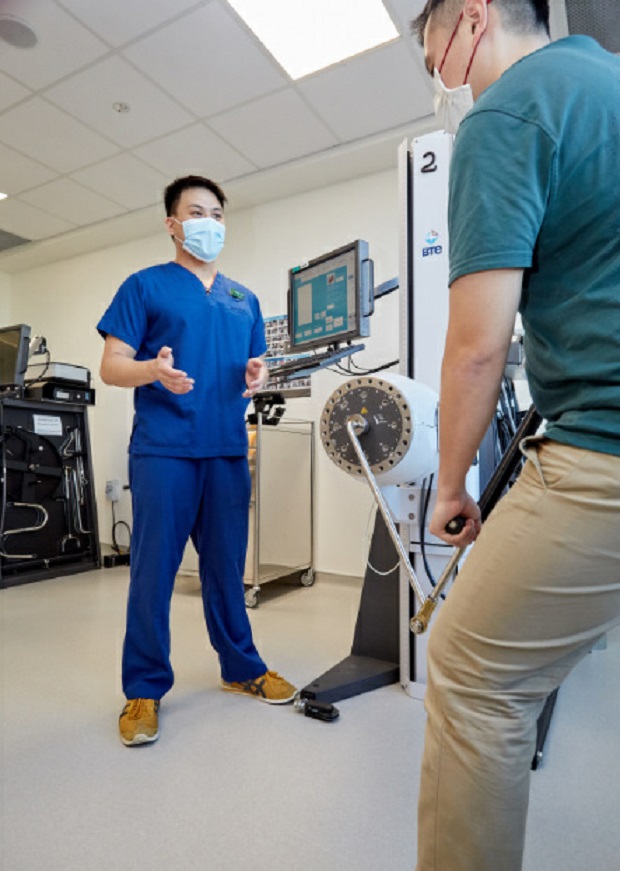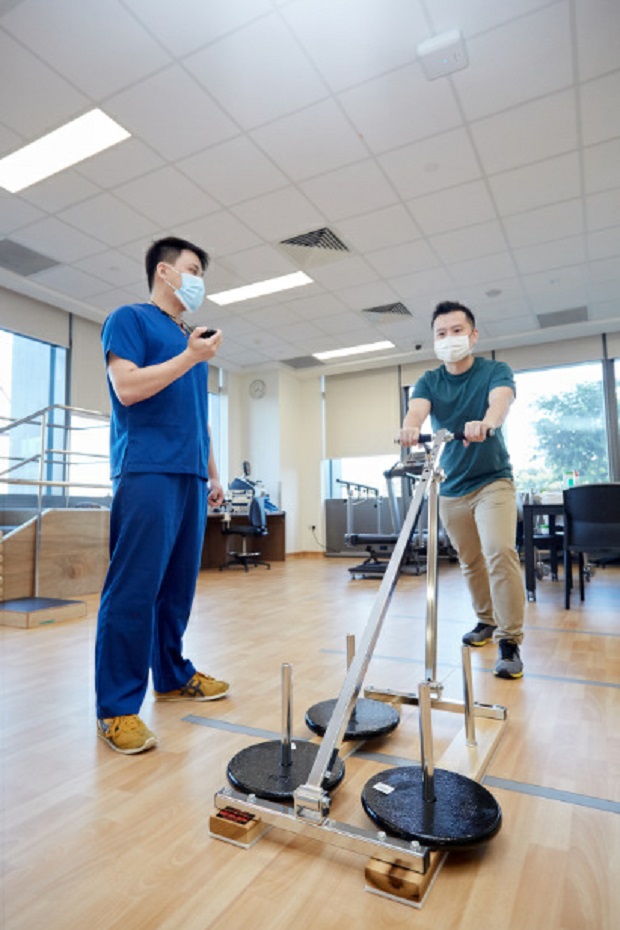The Return-to-Work Programme supports injured workers in their recovery and empowers them to continue making positive contributions at the workplace.
While preparing ingredients for pizza, Ms Jane Tan* got her hand caught in a grinding machine, badly tearing her hand and forearm. After undergoing extensive reconstructive surgery and hand therapy at Singapore General Hospital (SGH), her hand function improved.
After she was discharged to SGH’s Specialist Outpatient Clinics for regular reviews, she was found to be eligible for the hospital’s Returnto- Work (RTW) programme, which helps employees retain their jobs and return to work as soon as they are able. For some, the discussion with employers is to allow them — if possible — to ease into their job earlier, working on lighter tasks, before resuming their previous work.
Ms Tan’s employers were able to offer her administrative duties in the interim. She worked hard, waking up early to open the restaurant, order supplies, and handle other tasks. Yet, she was discriminated against by envious colleagues. She knew that she could not claim insurance for therapy indefinitely, and so strived to get well as quickly as possible. Unfortunately, she did not get back full function of her hand — albeit, the non-dominant side — because of extensive injuries.
Despite these hurdles, she managed to keep her job with the support of the SGH-RTW coordination programme.
“Research has shown that the longer a worker is out of work due to an injury, the less likely he or she will be able to assimilate later. We advocate for patients, helping them retain their employment as most of them are breadwinners for their families,” said Mr Benjamin Yap, Senior Occupational Therapist, SGH.
SGH’s RTW programme was launched in 2018 to help such patients safely cope with new challenges. “Before its launch, workers who took prolonged sick leave ran the risk of losing their jobs. Those who chose to return to work too soon to safeguard their livelihoods often suffered injuries again,” said Mr Er Wei Xiang, Senior Physiotherapist, SGH.
Studies have shown that someone who is off work for 20 days has a 70 per cent chance of returning to work. But if he has been off work for 70 days, his chance of returning drops to 35 per cent. To date, the RTW programme has helped more than 50 workers return to gainful employment.
In addition to their regular jobs, Mr Yap and Mr Er are RTW coordinators who help patients — mostly chefs, technicians, and construction and manual workers — who have suffered accidents at the workplace. These patients typically have burns and injuries to their hands, ankles, shoulders or spine.

<<Mr Yap is showing Mr Er how to use the machine that has a spade attachment to perform digging.>>
Once employees are enrolled in the RTW programme, the coordinator liaises with the patient, his employer, and healthcare professionals to review his medical condition and job demands. If necessary, the medical team may intensify rehabilitation. The patient’s accommodation and working arrangements may also have to be changed. If he is not able to return to his old job, referrals can be made to government employment centres or community services for vocational training or a new job.

<<Many patients under
the RTW programme are shipyard
workers with back injuries. Mr Er is
pushing a platform holding different
weights to evaluate his functional
capacity. If patients are not able
to do so, their jobs may have to be
modified, says Mr Yap.>>
Employers’ participation and support are crucial. In this respect, the programme is also designed to support employers. “Many employers have the misconception that RTW coordinator engagement is a form of scrutiny or penalisation of their work-safety culture,” Mr Yap said, noting some employers’ reluctance to enrol workers in the programme.
The RTW programme, however, should be seen as benefiting both employers and employees. Not only does the employer retain manpower, he is often viewed by his other employees as someone who cares for his workers and not someone totally driven by profitability.
Workers whose services are terminated early because of injuries can be driven to seek financial compensation. Such cases involve time, effort and costs on both sides, especially if a suitable compromise cannot be found and they go on to litigation for a solution.
*not her real name
